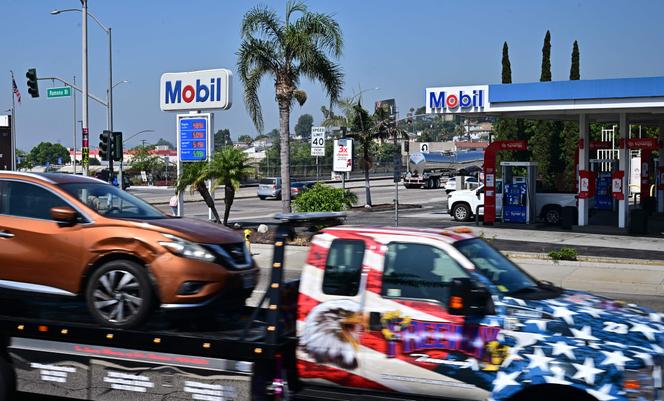


The most populous and wealthiest state in the US is officially suing the country's leading oil company ExxonMobil. In a first-of-its-kind lawsuit, the California Attorney General Robert Bonta has accused the company of willfully leading people to believe for decades that recycling plastics could solve the waste crisis when the company knew it was not possible. ExxonMobil "has lied to further its [record]-breaking profits at the expense of our planet and possibly jeopardizing our health," the prosecutor said.
It is the first time an American state has officially attacked an oil company over plastic pollution. The issue is becoming increasingly urgent globally, as plastic waste pollution of land and oceans is now a threat to public health. The most recent studies have detected microplastics accumulating in the liver, kidneys and even the brain. According to the scientific journal Annals of Global Health, published by Boston University, each chemical group associated with a plastic is linked to at least one health problem, from fertility to cancer.
In an effort to reach a global agreement on plastic pollution, the fifth session of the United Nations Intergovernmental Committee will be held between November 25 and December 1, in Pusan, South Korea. The US government has pledged its support for an international agreement to limit plastic production. It is a challenging commitment for a country that, closely after China, is the world's second largest producer. So it is plain to see that ExxonMobil promotes recycling to avoid having limits imposed on it. In the same way that it promotes capturing CO2 to avoid slowing down its oil production.
Despite concerns, production is far from declining. Plastics alone account for 50% of all petrochemicals and according to the International Energy Agency they are the major contributor to the increased demand for oil. And it could triple by 2060, according to the Organisation for Economic Co-operation and Development.
Limiting the production of plastic is far more challenging than reducing gasoline or diesel consumption. It was a groundbreaking post-war innovation that has found its way into everything with spectacular and positive effects in medicine, food preservation and lightweight transport. Everything around us includes plastic. And it is precisely its versatility that makes it so difficult to recycle. And recycling doesn't solve the public health problems. By the end of the 21st century, it is likely that last drop of oil to be extracted from the ground will be given over to plastic – but under increasingly close surveillance.
